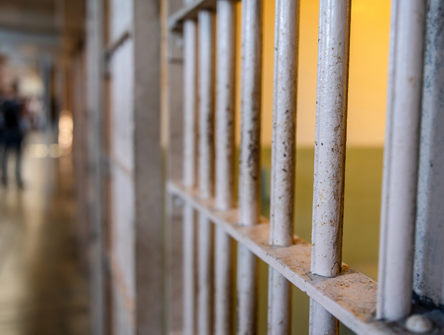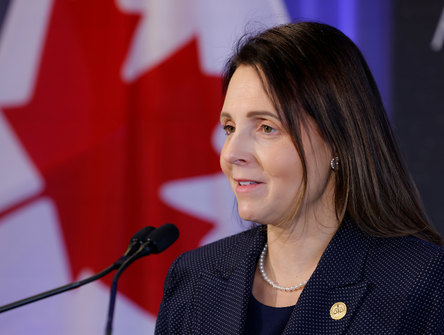Stalling on anti-corruption
Why this year's Transparency International report on confronting corruption offers Canada little praise.

Transparency International’s 2022 report on nations’ efforts to confront corporate corruption is arranged alphabetically by country. Bulgaria comes right before Canada.
Which is lucky for Canada, because TI’s assessment of Ottawa’s efforts (“limited enforcement”) looks positively glowing when compared to Bulgaria’s (“little or no enforcement”).
“Things seem to have essentially stalled since the last report,” says James Cohen, executive director of Transparency International Canada.
“We’ve seen signals from the RCMP that cases are in the pipeline, but we have no metadata on those cases, what they are, where they’re at. We hear reports that companies are cleaning up their acts, taking the law more seriously, but they’re all anecdotal.”
The only praise the report offers Canada is backhanded: “… the concern about prosecutorial independence highlighted in the 2020 report was specific to the SNC-Lavalin case and is no longer considered a high risk.”
That “concern,” you might remember, had to do with allegations of political pressure from the Prime Minister’s Office on a reluctant Justice Minister Jody Wilson Raybould to offer SNC-Lavalin a remediation agreement (or RA, known as a “deferred prosecution agreement” in other countries). SNC-Lavalin ended up pleading to a single charge of fraud and getting a $280 million fine; Wilson-Raybould ended up getting bounced from the Liberal caucus by Prime Minister Justin Trudeau, who was later found by the ethics commissioner to have acted improperly. So much for politics.
In part, what vexed Transparency International about Canada’s RA scheme in 2020 is what still troubles it about the system today: the lack of a reliable guide to how prosecutors decide where the “the public interest” lies when deciding whether to offer a company an RA that would allow it to escape prosecution.
“When the U.K.’s (deferred prosecution agreement) regime was introduced, the government issued guidance and changed the prosecutors’ manual,” says Jennifer Quaid, associate professor of law at the University of Ottawa and primary author of the Canada section of Transparency International’s 2022 report.
“Canada didn’t do the same. Our law lacks that supporting architecture. And it’s still radio silence (from the federal government) at the moment.
“It’s a problem for the companies, the ones that really want to comply with the law, if their lawyers can’t give them informed advice. It’s a problem for the public as well, as we saw with the SNC Lavalin case, which involved a lot of people speculating in public about the law’s purpose.”
And here’s where TI’s concerns about a lack of guidance dovetail with an observation it has made in multiple reports — that Canada still doesn’t seem to do much on the anti-corruption front.
The report, in part, blames a dearth of policing resources and a lack of cooperation between jurisdictions for the apparent lack of anti-corruption action — apparent because, as TI points out, Canada offers “no published, updated statistics on foreign bribery enforcement.”
So outside observers like Cohen have had to rely largely on anecdote. Noah Arshinoff, who teaches anti-corruption law to University of Ottawa law students, says he thinks the SNC Lavalin scandal “brought everything to a halt for a time” by giving the federal government “cold feet” about pursuing such cases.
Russia’s invasion of Ukraine, he says, changed things.
“There just seems to be more people in the federal government taking notice of this now. I’ve been invited to several roundtables at [Global Affairs Canada] recently on combatting corruption,” says Arshinoff. “I’ve heard from several people in government that the resources going to anti-corruption activities are on the rise. And we just got our first confirmed RA, out of Quebec, and there are rumblings of another two under negotiation.
“Before the invasion, the government had made a soft commitment on a beneficial ownership registry. After the invasion, they set a target date of the end of 2023. Now the word ‘kleptocrat’ means something different in government circles — more of them understand now that these are the people who finance wars.”
Still, foreign bribery caselaw is thin on the ground in this country. Its scarcity feeds a vicious cycle, says Sabrina Bandali, an international trade lawyer at Bennett Jones: with little in the caselaw to go on, businesses struggle to know precisely what the law requires of them.
“When a company notices that something in its operations has gone offside, clearly there are right answers — it should investigate, it should fix the problem,” she says. “But companies are still faced with a larger uncertainty over what the law requires.
“And a lack of enforcement leads to that uncertainty. A lot of Canadian companies operating abroad work through third parties. They’re asking themselves, what is the scope of our responsibilities when it comes to these third parties? How far do we need to go to ensure our suppliers aren’t crossing the line?
“We’ve had anti-corruption laws on the books now for at least 20 years. We should be further along.”
An evergreen source of concern in TI’s assessments of anti-corruption law in Canada is the high bar this country sets for a conviction. “At present,” says the TI 2020 report, “the (Corruption of Foreign Public Officials Act) offences are subjective mens rea offences that target reckless or intentional conduct. This sets a high a burden on prosecutors.”
Proof of “corporate recklessness or intention,” says TI, “is drawn from proof beyond a reasonable doubt that senior members of a corporation know about corrupt activities. In practical terms, this is difficult to prove without an admission.”
According to the 2021 TI report, one possible solution would be to create, as the U.K. did, an alternate path for sanctioning corporate corruption abroad — a “failure to prevent” offence with a lower burden of proof.
“In the U.K., it shifted the burden to companies to prevent acts of corruption, rather than respond after the fact,” says Arshinoff. “The idea is to force them to pay attention to what’s being done in their name, with their money.
“If you know you’re expected to do your due diligence and all you do is go on the internet and download some template, that in itself is failure to prevent and could constitute sufficient mens rea to prosecute.”
Even though Quaid wrote the Canada chapter of TI’s 2022 report, she’s not wild about the idea of a “failure to prevent” offence.
“I’m a skeptic,” she says. “I worry about lowering the bar that way.
“Corruption is supposed to be a serious offence. What would be the baseline for proof? It would have to be a regulatory offence to permit reversing the burden of proof. Giving companies what amounts to an easy out is not what you do with a serious offence.
“And how do you enforce? Are you just going to audit everyone periodically?”
Bandali disagrees. Adding a “failure to prevent” offence would expand the suite of options available to prosecutors, she says.
“This is something Canada really needs to look at,” she says. “It comes back to the concept of institutional multiplicity, the idea that having institutions with overlapping mandates is a good thing because if one drops the ball, another can pick it up.
“Part of the purpose of criminal law is to call out things that we believe are really, really wrong. But at the end of the day, what we all want is less corruption, because the problem of corruption is corrosive. If there’s a way to have different tools available to achieve that goal, I’m all for it.”


